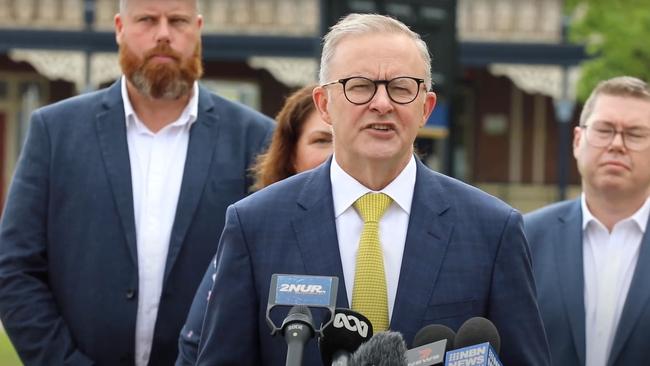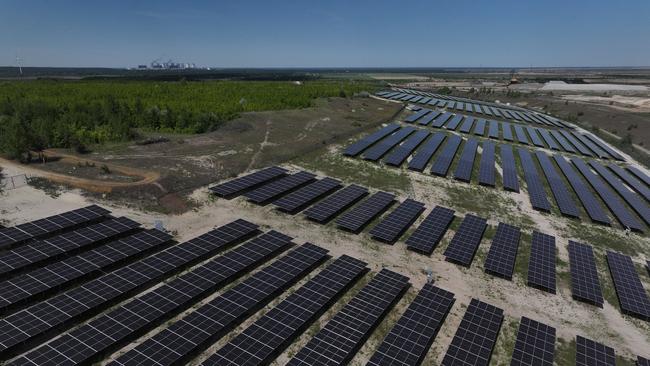Australia falling behind in global hydrogen race, Wood Mackenzie warns; recommends more funding
More than 80 per cent of Australia’s low-carbon hydrogen projects remain in their early development stages, and multiple high-profile proposals have been scrapped in recent years.

Business
Don't miss out on the headlines from Business. Followed categories will be added to My News.
Australia is slipping behind global leaders in the emerging hydrogen economy, despite bold ambitions and federal incentives aimed at transforming the country into a renewables superpower, according to Wood Mackenzie research.
The answer might be more handouts.
The new report reveals that more than 80 per cent of Australia’s low-carbon hydrogen projects remain in their early development stages, with multiple high-profile proposals resigned to scrap. While the Albanese government has flagged hydrogen as a key pillar of Australia’s net-zero transition, the pace of progress has been sluggish and uneven.
And the numbers illustrate just how far behind the rest of the world Australia is, said Joshua Ngu, vice chairman for Asia Pacific at Wood Mackenzie.
“Australia is trailing global hydrogen frontrunners such as Europe and the Middle East,” said Mr Ngu. “Persistently high electricity and development costs have eroded Australia’s competitive edge.”
Globally, just 6 million tonnes per annum (Mtpa) of low-carbon hydrogen capacity is currently operational or under construction. Australia accounts for less than 5 per cent of that total, a strikingly low share given the country’s natural advantages in renewable energy.
Federal Labor has long pitched Australia’s expansive land, abundant sunshine and wind, and proximity to Asian energy customers as key enablers of a globally competitive hydrogen export sector. But the report suggests those advantages are being undermined by cost pressures and a lack of commercial demand.

“Hydrogen offers significant potential to decarbonise hard-to-abate sectors such as steelmaking, long-haul transport and power generation,” the report said. “But at current production costs, hydrogen in Australia is economically unviable without stronger policy support.”
While Canberra has introduced a number of incentives to jump-start hydrogen investment — including funding through the Hydrogen Headstart program and various state-based initiatives — Wood Mackenzie argues more direct financial support is needed to close the gap with hydrogen’s leaders.
By comparison, the United States offers more than twice the level of subsidies available in Australia, thanks to generous production tax credits under the Inflation Reduction Act. Matching that level of support could prove politically difficult, with critics already decrying hydrogen subsidies as handouts to billionaires, in a nod to the taxpayer dollars that Andrew Forrest’s green hydrogen interests, for example, would qualify for from 2027.
Another pathway Australia could explore, the report suggests, is supporting blue hydrogen — produced using natural gas alongside carbon capture and storage — as a transitional fuel option.
While green hydrogen, made using renewable electricity, has been the government’s preferred approach, blue hydrogen has remained politically contentious due to its reliance on fossil fuels.
Still, public perception may be shifting as gas increasingly gains traction in the march back from coal.
“With vast gas reserves in Western Australia, Australia is well-positioned to produce blue hydrogen domestically,” said Mr Ngu. “This approach could also accelerate the development of CCS (carbon capture and storage) infrastructure, which is essential for long-term decarbonisation and broader economic benefits.”
The report concludes that unless Australia addresses its cost and demand challenges — and potentially embraces a broader hydrogen strategy — the country risks missing out on a key opportunity to lead in a rapidly growing global market.
More Coverage
Originally published as Australia falling behind in global hydrogen race, Wood Mackenzie warns; recommends more funding





